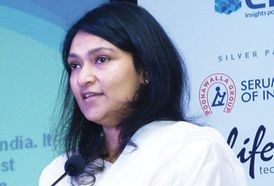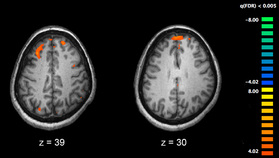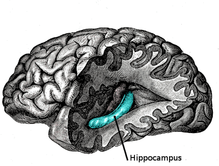|
10/30/2014 0 Comments An Interview with Mahima Datla By Trishanya Raju Mahima Datla (37) has been the Managing Director of Biological E. Limited since April 2013, and is a part of the board of the Global Alliance for Vaccines and Immunization (GAVI). She has worked in the Pharmaceuticals industry since 1998, and has now been nominated for an award that recognizes women in science. I managed to get in touch with this inspirational woman, and got her thoughts on a few things. Me: What would you say encouraged you to go into the Pharmaceutical Industry? Ms. Datla: I would say that it was the realization that I had the ability to make an impact. Particularly with respect to vaccines, which are one of the most cost effective health interventions known to mankind. Also the fact that such critical and life saving vaccines are often not accessible to many of the poorest in the world. Through our company's efforts I was convinced we could play a role in reducing some of these inequities. Me: Could you tell me a little bit more about this award that you’ve been nominated for? Ms. Datla: Well, I was nominated by this society in Switzerland that recognizes women in science and the humanities. I believe I was nominated for the work that our company does. As I’ve said, we help bring affordable vaccines to the people who need them. Me: What are your predictions for the trends in science, and about scientific progress in general? Ms. Datla: I think that there are huge leaps occurring in innovation, genetic sciences, and manufacturing technologies. But, regulatory barriers will continue to impact the pace of change and adoption of these developments. Me: And what would you say about the status of women in the scientific arena? Ms. Datla: I think women have proven time and time again that they command a significant presence in the scientific community. That being said, there is potential for more women to move into the community, without fear of not having a place for themselves. Hopefully, the number of women in the scientific community will continue to grow. Me: Do you have any advice for young women who someday hope to work in the Pharmaceutical industry/ science fields in general? Ms. Datla: The advice that I have to give is the same as the advice I would give a woman going into any field, like business, for example. Don’t expect the world to make accommodations for you because you are women. Competence is really recognized. Do your homework and see if it’s where you really want to be. It’s especially helpful if you have a mentor, be it a woman or a man. Their presence will help you flourish as you benefit from their years of experience. In the banking sector, many of the key players are women, and I find it bizarre that this can’t expand to other fields as well. Men, as well as women make trade offs about what is important in their lives on a daily basis. You just have to make sure that you balance everything in a way that makes you happy. For more information, visit: 1. GAVI Alliance http://www.gavi.org 2. Biological E. Ltd. http://www.biologicale.com
0 Comments
10/30/2014 0 Comments On Alzheimer's Disease By Rishika Pulvender The continued mental deterioration occurring in middle or old ages, mainly due to degeneration of the brain is known as Alzheimer’s disease. The brain’s nerve cells, neurons, are attacked resulting in memory loss. The neurons, which hold connections to many different parts, break their connections and hence degenerate. When the nerve cells in the hippocampus are destroyed, Alzheimer’s disease seems to have affected the memory component of the brain. Similarly, when neurons in the cerebral cortex are destroyed, the language and judgment abilities are affected and hence decline. Alzheimer’s is a type of dementia that causes problems with memory. This majorly affects those of age 65 or higher. As of now, there is no concrete cure for those diagnosed with Alzheimer’s disease, and hence many experiments are run testing different effects. One specific trial tested the placebo effect. The trial involved 215 patients who were at random placed at either a fully functional ventriculoperitoneal shunt (a surgery treating excess cerebrospinal fluid in the brain) or a ventricular catheter with distal shunt occlusion. The outcomes were to measure the Mattia Dementia Rating Scale and the Global Deterioration Scale; however, the trial was halted and ended due to futility and lack of clinical benefit. Though the placebo was not effective in this controlled experiment, its effects regarding other surgical processes can still be tested. From here, it will be interesting to see what the miracles of surgery or lack of it can bring to Alzheimer’s. Sources: http://www.alzfdn.org/AboutAlzheimers/definition.html http://journals.lww.com/neurosurgery/fulltext/2008/10000/shunting_for_alzheimer_s_disease__stymied_by_a.5.aspx 10/30/2014 0 Comments Actuaries: What They Actually Do By Angie Miller Creative? Like working with computers? Able to assess situations? Probability is your thing? Actuaries are in the field of Mathematics and Computer Science. They are becoming more and more needed growing at a faster than average rate of job growth in the next 10 years. With a median salary of $91,060 in the United States, actuaries are actually doing a necessary job. From assessing risk of negative events to predicting future impacts, actuaries help mediate between individuals and businesses. Work environment for an actuary is typically around 40 hours per week usually at a desk job but sometimes traveling as well. Generally actuaries will analyze statistical information and determine rates based on probabilities to reduce the impact of the risks, determining specific policies for clients and helping to improve existing business, and constructing probability tables that events are likely to occur. Education is focused on classes including mathematics, computer science, and economics. Generally actuaries must have a bachelor’s degree and also become certified by completing a sequence of exams. Approximately 100 colleges and universities in the United States offer an actuarial science program. Personality skills that are key for actuaries include knowledge and interest in current events in health, business, and finance, being able to communicate with others effectively, and computer software skills. Similar careers to actuaries are accountants, financial analysts, cost estimators. For further information including links, articles and videos check out: http://www.sciencebuddies.org/science-engineering-careers/math-computer-science/actuary#keyfactsinformation 10/29/2014 0 Comments Can You Fully Trust Yourself?  By Bridget Hennessy From the day you are born, your brain is the only thing you know. It controls everything you do, while simultaneously remaining a separate entity from the “you” that you think you are. Despite knowing that you are your brain, you still think you maintain a certain level of control over your brain. You unquestioningly trust your brain and the knowledge it holds, though the brain erases forty minutes of your lifetime each day. It’s discomforting to know that our brains are changing what we perceive and believe every day through what we see. Every time we shift our eyes to concentrate from one object to another, the brain uses “saccadic masking” to smooth over the blindness we experience from the rapid change of vision. The fraction of time it takes to concentrate on two different objects produces a blur in our vision in which we are so blinded that our brain cannot perceive it. The brain therefore erases this moment from our mind and replaces it with simply the first object we see, remembering it instead for an extended second to make up for the lost time. The brain “masks” this disorientation, though this happens so frequently that we lose around forty minutes a day to saccadic masking. This adds up to around two years of life missed out on if you live to be eighty! And yes, this is extremely helpful to ensure that the mind is not overwhelmed with sensory information it cannot do anything with, but it is also extremely unsettling to know that your brain can function independently and erase your memories without you knowing. If the brain can decide which information you retain without you realizing, what else can it do? Source: http://www.experimentation-online.co.uk/article.php?id=1353 10/29/2014 0 Comments The Bionic EyeBy Kaitlynn Bayne On October 7th, Larry Hester was able to see for the first time in over 30 years. No, his site didn’t magically appear, and the doctors were not able to make him see what we see. However, with the bionic eye technology, Hester was able to see the difference between light and dark. Just being able to tell between light and dark might sound a little disappointing, but for someone who has been blind half of his or her life, seeing this contrast is life changing. The Bionic Eye isn’t actually an eye--it is a pair of glasses that have a camera that captures video and creates an electric signal. As the Huffington Post explains, this signal is then through an implanted electronic stimulator (put into the eye through surgery) and sent to undamaged cells in the retina. When this signal is received, the brain interprets the signal as fragments of bright and dark. What the contrast of light and dark means depends on the person. It can help direct them through doorways and can help them tell when an object is in their way. Sure, this isn’t a full-cure to being blind. However, it is a big step in the right direction. The Bionic Eye technology first came onto the market around 2011. Hester is now the seventh person in the US to be using this technology. The Bionic Eye is quite pricy, costing around $100,000, but hopefully in the next few years, the technology will become more readily available. And who knows? Maybe in the near future, even more progress will be made with the Bionic Eye, allowing people to see even clearer after years of only being able to see darkness. It’ quite amazing to think of all the things that technology can do!  By Anna Cook Many of us are familiar with the warnings about the negative effects of studying while listening to music, yet why is it we so often prefer to accomplish schoolwork with our headphones on? There is a common belief that music in the workplace and classrooms distracts individuals and auditory pleasure detracts from learning. However, studies of patients with visual hemineglect suggest auditory satisfaction and productivity may be linked. Hemineglect results from damage to one of the brain’s hemispheres, causing an inability to perceive stimulus on the contralateral side of space. Individuals with hemineglect struggle to see half of their visual field, voluntarily move half of their body and perceive sound occurring on their effected half. In this study, patients listening to their preferred music displayed improved abilities to carry out the perception and detection tasks they initially struggled with. While listening to music, more than just their auditory regions were activated. This suggests that listening to music may be an effective mental exercise for those with hemineglect by increasing function in neglected areas. Music may also improve the healthy brain’s overall attentive and cognitive abilities. Are satisfaction and productivity linked? For those with hemineglect, many suffer visual deficit as well as auditory, motor, and somatosensory deficits in half of their bodies. In such a sensory-dependent world, it must be extremely confusing and frustrating to process such a limited amount of one’s environment. Allowing patients to select their preferred music may restore a sense of control over their surroundings. I believe this study suggests it is an innately human need to feel somewhat in control of one’s environment What does this mean in terms of music and attention? As studies continue to prove and disprove the efficacy of music as an attentive stimulant, I think a subcategory worth studying is the positive effects of security in one’s environment and one’s mental focus. Music may increase schoolwork success by providing a sense of control and comfort during studying. Essentially, you should use headphones at your own digression. Sources: http://www.pnas.org/content/early/2009/03/20/0811681106 http://www.scholarpedia.org/article/Hemineglect 10/26/2014 0 Comments What is Schizophrenia? By: Ammara Virk Schizophrenia is defined as a “chronic, severe, and disabling brain disorder” that results in hallucinations, anxiety and agitation, among other symptoms (NIMH). It turns out that Schizophrenia is not an entity in and of itself. While it is known that factors such as heritability and environment can influence the onset of schizophrenia, not much more is known about the complexity of this disease. Current research claims that schizophrenia may actually be a spectrum of eight separate diseases. While researchers would normally look at individual genes when determining the link between schizophrenia and heritability, scientists at Washington University tested over 4,000 people who had schizophrenia and found that there were in fact, gene clusters and that these gene clusters were responsible for the eight distinct classes of schizophrenia. To further the complexity, while there may be several separate gene mutations, they might only express themselves as one or two symptoms. “So…what’s causing hallucinations in one person might be different than what’s causing them in another,” (CNN). So what could this mean for further treatment? At the very least, one might speculate that this will allow one to be able to treat schizophrenia more precisely, given that they are aware that it is not the exact same gene in each individual that is causing the symptoms. CNN:http://www.cnn.com/2014/09/16/health/schizophrenia-eight-diseases/index.html?hpt=he_bn7 NIMH:http://www.nimh.nih.gov/health/topics/schizophrenia/index.shtml 10/26/2014 0 Comments Erasing Memories Now Possible By Bridget Hennessy Is Eternal Sunshine of the Spotless Mind becoming a reality? Scientists at the UC Davis Center for Neuroscience and Department of Psychology have found that memories in mice can be erased using light, reminiscent of the 2004 movie that featured memory deletion as a way to cope with heartbreak. The neuroscientists first modified the nerve cells in mice to fluoresce green and express a protein that can be shut off by light when activated. It was found that by putting mice in a cage, shocking them, removing them from the cage, and then reintroducing them to that environment, a fear response would be initiated upon their return to the cage. The mice were demonstrating memory recall by becoming fearful in the cage, which activated the nerve cells recalling the memory. The scientists were able to follow the fluoresced nerve cells activated from the memory retrieval to the hippocampus and switch them off with light. The unpleasant memories in the mice were completely lost through this process, and the mice could reenter the cage with only inquisitiveness, which was their reaction when introduced to the cage the first time. Additionally, it was found that turning off other cells besides nerve cells in the hippocampus does not affect memory retrieval, and the role of the amygdala to attach emotion to recollections was also reinforced. Though this discovery will not expand into the mayhem in the 2004 film Eternal Sunshine of the Spotless Mind, its information is already leading to memory prosthesis, or memory implantation, in mice. Source:http://www.t4mag.com/science/3004/scientists-hint-memory-removal-human-brain-success-latest-research/  By Claire Wiggins Autism spectrum disorder (ASD) characterizes a wide range of social disability, and although scientists don’t know the exact cause of ASD, research has indicated that both genetics and environment play key roles. Often, people with ASD experience a period of rapid brain growth shortly after birth. A new study suggests that this previously misunderstood process may be caused by inflammation in the pregnant mother. The researchers at UCLA showed that when inflammation was induced in pregnant mice, an excessive division of neural stem cells in the offspring was noted. “We have now shown that one way maternal inflammation could result in larger brains and, ultimately, autistic behavior, is through the activation of the neural stem cells that reside in the brain of all developing and adult mammals,” said the senior author of the paper, Dr. Harley Kornblum. After birth, the mice with enlarged brains exhibited behaviors typical of many autistic children, such as lack of interest in socialization with the other mice or less likely to produce noise when separated from their mother. The team discovered that the brain growth caused by the inflammation was greater is the mouse lacked a certain tumor suppressor gene, confirming previous studies that have indicated that there are both genetic and environmental factors involved in ASD. The research team also isolated a specific molecular pathway responsible for the brain growth response. These two discoveries open up possibilities for therapeutic targets, which could lead to future treatments. Read more here: http://www.sciencedaily.com/releases/2014/10/141010154926.htm  By Kaitlynn Bayne CNBC recently reported on Google’s next big invention: giant TVs made out of blocks that can be arranged any way you please. “Think Legos, but with screens that together make up a giant TV of different sizes and shapes.” My first thought: wow, this is so amazing! After reading CNBC’s article and thinking more about the idea, I’m not sure this idea will catch on. Mary Lou Jepsen, a former professor at MIT, is the genius behind this product. Don’t get me wrong, the idea sounds absolutely awesome. Comparing the technology to Legos makes me think of giant, brightly colored blocks with TVs on them. It sounds like it would be entertaining to put together and would make for some interesting interior design. However, the price and the practicality don’t seem like it will catch on to the general public. According to CNBC’s article, the screens may piece together to take up a whole living room wall, and may be priced over $100,000. Which leads me to ask, where would this be useful? Who is dying to have a TV the size of their entire wall? As for the price, will people actually spend as much on their TV as they can on a house? I don’t see a TV that costs six figures appearing in the common family household any time soon. Granted, Google has not released much information on this product yet. It is likely that there will be smaller, slightly cheaper TVs for purchase as well (although I’m sure they will still be on the pricey side). I’m interested to see where this technology goes. It kind of reminds me of the Google glasses: super cool, but not necessary. But who knows, maybe modular televisions will be normal in the next few decades! |
WELCOME, UMICH SCIENTISTAS!
CAMPUS PICS
WHAT'S NEWUPCOMING EVENTSPAST POSTS
October 2022
SORT BY TAG |
The Scientista Foundation, Inc. All Rights Reserved © 2011-2021 | Based in NY | [email protected]
The Network for Pre-Professional Women in Science and Engineering
The Scientista Foundation is a registered 501(c)(3) -- Donate!
The Network for Pre-Professional Women in Science and Engineering
The Scientista Foundation is a registered 501(c)(3) -- Donate!


 RSS Feed
RSS Feed